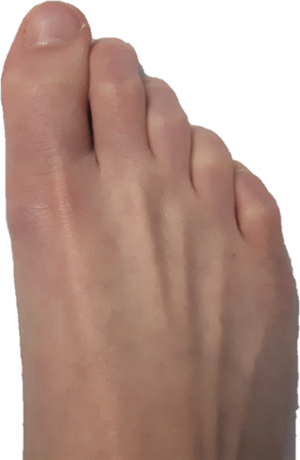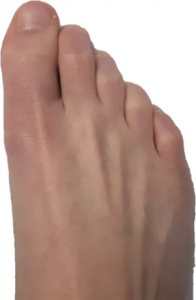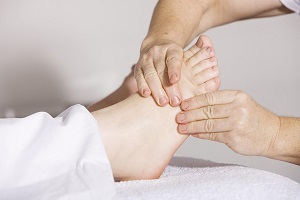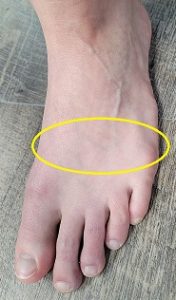
Orthotics for Morton’s Neuroma
Sharp pains into your toes may lead you to a diagnosis of Morton’s Neuroma. When the diagnosis is confirmed, you may be interested in what it is and how to get rid of the pain. Custom foot orthotics is a common way to help with Morton’s neuroma pain when you are diagnosed.
What is Morton’s Neuroma?
Morton’s neuroma occurs when there is a thickening around the nerves that run to your toes. These nerves are individual nerves running between each metatarsal bone in the foot, which are the bones that connect to your toes.
When too much pressure or friction occurs to these nerves, at the metatarsal bones, the nerves can thicken and develop into a Morton’s neuroma.
Symptoms that develop from Morton’s neuroma can be tingling, numbness or shooting pain into the toes. Wearing tight fitting shoes can make these symptoms worse as it puts extra pressure on the Morton’s neuroma.
A common area to develop a Morton’s neuroma is between the third and fourth toes. This is because the space between these metatarsal bones is narrower than the other spaces.
Causes of Morton’s Neuroma
Morton’s neuroma can be caused by a collapsed of the arch at the ball of the foot. When the arch collapses, the metatarsal bones move closer together. When these bones move closer together, they can press against and rub the nerves running between the metatarsal bones. Eventually, this pressure can lead to a Morton’s neuroma.
Tight fitting shoes can also lead to a Morton’s neuroma. When the sides of the ball of the feet and toes are pushed together, it compresses the nerve and can lead to a Morton’s neuroma.

How orthotics help Morton’s Neuroma
Orthotics help with Morton’s neuroma by relieving the pressure on the affected nerve. Support called a metatarsal pad lifts up the arch at the ball of the foot. This opens up the space between the metatarsal bones to relieve pressure on the Morton’s neuroma.
The other areas of support that orthotics provide will also prevent the feet and bones from moving around and rubbing against the nerve. For example, a collapsed medial arch (main arch on the inside) can lead to excessive motion at the metatarsal bones and/or can lead to a shift inside the shoe, compressing the outside of the foot against the shoe.
Other ways to deal with Morton’s Neuroma
Foot exercises and stretches can also relieve pressure at the nerve. The arch at the ball of the foot typically collapses because we don’t use these muscles very often. Stretching out the muscles that are overworking and strengthening the muscles that have weakened can eventually lift up the arch at the ball of the foot again.
Proper shoes can make a big difference in pain. Shoes that are wide and deep enough for the foot will prevent excessive pressure to the nerve. This is because pressure on the sides of the feet will push the metatarsal bones together and press against the Morton’s neuroma. Make sure to find a shoe that has the appropriate width for your feet, and is wider at the toe box to prevent the toes from squishing together.
 Other health practitioners may be able to help relieve pressure at the Morton’s neuroma. For example, massage therapy can help to relax the muscles around the foot to release pressure on the nerve. Talk to your health care practitioners to see if they can help relieve your pain!
Other health practitioners may be able to help relieve pressure at the Morton’s neuroma. For example, massage therapy can help to relax the muscles around the foot to release pressure on the nerve. Talk to your health care practitioners to see if they can help relieve your pain!
Conclusion
Orthotics for Morton’s neuroma can be beneficial to relieve pressure and pain by providing more space for the nerve.
For more information about your feet, you can contact us or book an appointment.


You must be logged in to post a comment.